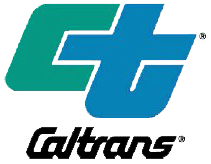The California State Transportation Agency today joined the California Air Resources Board and California Department of Transportation in announcing support for a new national research program to support sustainable transportation.
“The California Transportation Agency is taking action to combat climate change by reducing greenhouse gas emissions from transportation,” California State Transportation Agency Secretary Brian Kelly said. “Caltrans is already reducing emissions by at least 160,000 tons annually—the equivalent of removing 31,000 cars off the road—while the high-speed rail system prepares to bring environmental benefits for years to come. This research program will help find even more way to reduce greenhouse gas emissions while preparing for the extreme weather events from climate change.”
The National Center for Sustainable Transportation at University of California Davis will receive $5.6 million from the U.S. Department of Transportation and $5.6 million in matching funds from state, regional and local agencies to support its research.
Examples of some research goals include: improving the durability of construction materials, improving mobility with new traffic control devices, and supporting the transition toward zero-emission vehicles and new fuel technology. In addition, the National Center for Sustainable Transportation at UC Davis will:
* Support technology and innovation that helps fight climate change and boost sustainability in transportation;
* Develop research that helps mitigate greenhouse gas emissions and other environmental impacts; and
* Work with Caltrans and other state and local partners to deliver new transportation technology and innovation to help fight climate change.
 Caltrans is also working with the UC Pavement Research Center, which is focused on improving the longevity and sustainability of construction materials. These innovations include new pavements that can be mixed at lower temperatures, reducing emissions and fuel usage. Caltrans has implemented many concrete and pavement strategies that are cutting statewide emissions by more than 108,000 tons of CO2 equivalent annually.
Caltrans is also working with the UC Pavement Research Center, which is focused on improving the longevity and sustainability of construction materials. These innovations include new pavements that can be mixed at lower temperatures, reducing emissions and fuel usage. Caltrans has implemented many concrete and pavement strategies that are cutting statewide emissions by more than 108,000 tons of CO2 equivalent annually.
Caltrans is also cutting greenhouse gas emissions by reducing traffic congestion, expanding active transportation and embracing new technology in construction materials, alternative fuels, efficient lighting and renewable energy. Installing efficient roadway lighting and using alternative fuels and vehicles in the state fleet cut greenhouse gases by 41,000 tons of CO2 equivalent per year.
“To prepare for climate change and adapt to its effects, Caltrans is focused on preserving our state’s existing transportation infrastructure while continually innovating to find better solutions,” said Caltrans Director Malcolm Dougherty in a letter introducing a 114-page report from 2013 documenting Caltrans activities to fight climate change. “Caltrans is also working with our other partners to cut greenhouse gas emissions by continually working to reduce traffic congestion, expand active transportation such as walking and biking, and also embrace new technology in construction materials, alternative fuels, efficient lighting and renewable energy,” Dougherty added.
Caltrans was one of the first state agencies to successfully certify its greenhouse gas emissions inventory with the California Climate Action Registry, a program committed to fighting climate change through accounting and emissions reductions.
Caltrans also engages in its own cutting-edge transportation testing and research through the California Transportation Laboratory (TransLab). TransLab conducts specialized laboratory and field testing, provides inspections, and gives expert advice on all phases of transportation engineering involving materials and manufactured products. TransLab engineers and technicians have earned a worldwide reputation as leaders in the field of materials engineering, seismic safety, and environmental analysis.
For more information on the new research program visit the UC Davis Institute of Transportation Studies http://www.its.ucdavis.edu/?post_type=slide-show&p=17078
For more information on Caltrans efforts to fight climate change: http://www.dot.ca.gov/hq/tpp/offices/orip/climate_change/documents/Caltrans_ClimateChangeRprt-Final_April_2013.pdf#zoom=75
For more information on the Caltrans Transportation Laboratory visit http://www.dot.ca.gov/ctjournal/CTJ_2009_Is1_translab.html
The California State Transportation Agency, which launched July 1, 2013, is responsible for transportation-related departments within the state: Board of Pilot Commissioners, California Highway Patrol, California Transportation Commission, Department of Transportation, Department of Motor Vehicles, High-Speed Rail Authority, New Motor Vehicle Board and Office of Traffic Safety. The Agency was formed as part of Governor Brown’s Government Reorganization Plan, which became law in 2012. In June, the Agency announced $87 million in new federally-funded traffic safety grants administered by the Office of Traffic Safety. Last year, the Agency formed the California Freight Advisory Committee to help determine the state’s plans for freight-related transportation investments in California. The Agency also formed the California Transportation Infrastructure Priorities Workgroup, which will help set priorities for transportation spending and explore long-term funding options to deliver California’s infrastructure needs.
State Agencies Embrace $11 Mil. Initiative to Curb Greenhouse Gas Emissions on Roads
